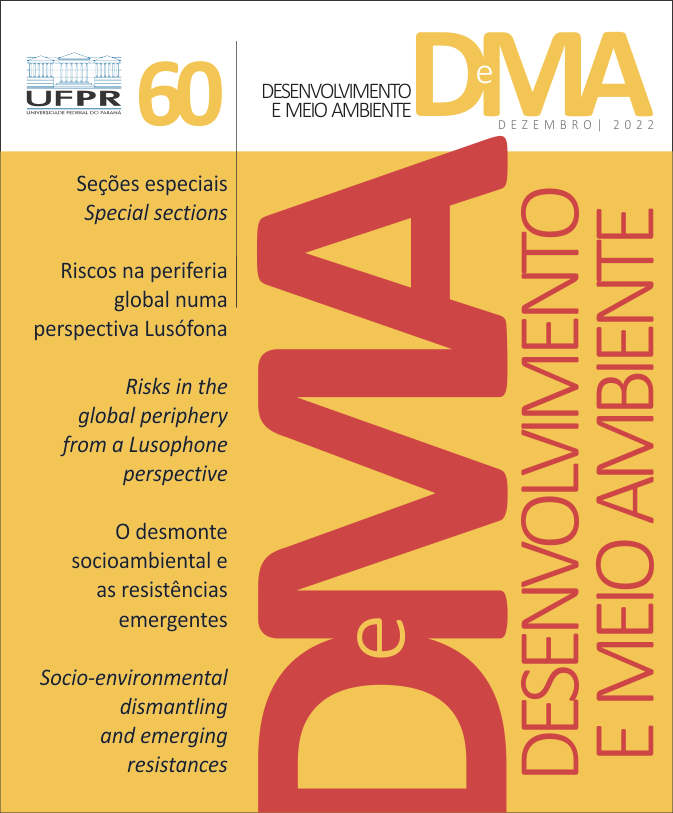Sustainability indicators for evaluation of municipal urban water management system: the case of Volta Redonda – RJ/Brazil
DOI:
https://doi.org/10.5380/dma.v60i0.78084Palavras-chave:
water resources, sustainability assessment, sustainability indicators, Delphi techniqueResumo
The risks of scarcity have forced several countries to change their water resources management. In Brazil, the Paraíba do Sul River has a great importance as it supplies water for many cities of the Southeast region. Thus, the management of water and wastewater systems demands a more sustainable and efficient scenario. The study's objective was to evaluate, through sustainability indicators, the urban water management system in Volta Redonda (Rio de Janeiro state, Brazil). The selection of sustainability indicators was done through Delphi technique: a group of eight specialists selected the indicators used to evaluate sustainability, its dimension and level of importance. The six criteria for the classification of indicators according to the dimensions of sustainability were: (1) Environmental / Ecological, (2) Economic, (3) Social / Cultural, (4) Technological (5) Ethical and (6) Political / Institutional. Most of the indicators were considered "very important" or just "important". Regarding the dimension of sustainability, 93% of indicators contemplated more than three dimensions. However, 13 indicators contemplated all the six dimensions as they were multidimensional indicators, analyzed according to the municipal data. The chosen method for the indicator's selection was considered quite satisfactory, since they were able to generate a set of key indicators to show the current municipal water and wastewater scenario. The city has shown satisfactory conditions regarding fresh water supply index. However, some indicators pointed a not sustainable system due to the low wastewater treatment index, precarious state of the river's life and divergences between the basin plan and the municipal director plan.
Downloads
Publicado
Como Citar
Edição
Seção
Licença
Os Direitos Autorais sobre trabalhos publicados nesta revista são do autor, com direitos de primeira publicação para a revista. O conteúdo dos trabalhos publicados é de inteira responsabilidade dos autores. A DMA é um periódico de acesso aberto (open access), e adota a licença Creative Commons Atribuição 4.0 Não Adaptada (CC-BY), desde janeiro de 2023. Portanto, ao serem publicados por esta Revista, os artigos são de livre uso para compartilhar (copiar e redistribuir o material em qualquer suporte ou formato para qualquer fim, mesmo que comercial) e adaptar (remixar, transformar, e criar a partir do material para qualquer fim, mesmo que comercial). É preciso dar o crédito apropriado, prover um link para a licença e indicar se mudanças foram feitas.
Os conteúdos publicados pela DMA do v. 53 de 2020 ao v. 60 de 2022 são protegidos pela licença Creative Commons Atribuição – Não Comercial – Sem Derivações 4.0 Internacional.
A DMA é uma revista de acesso aberto desde a sua criação, entretanto, do v.1 de 2000 ao v. 52 de 2019, o periódico não adotava uma licença Creative Commons e, portanto, o tipo de licença não é indicado na página inicial dos artigos.




